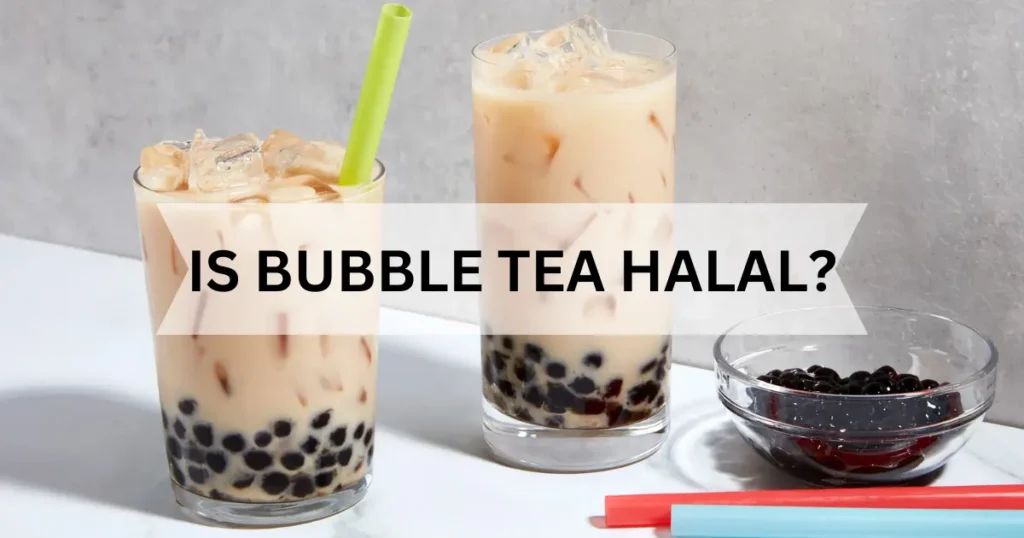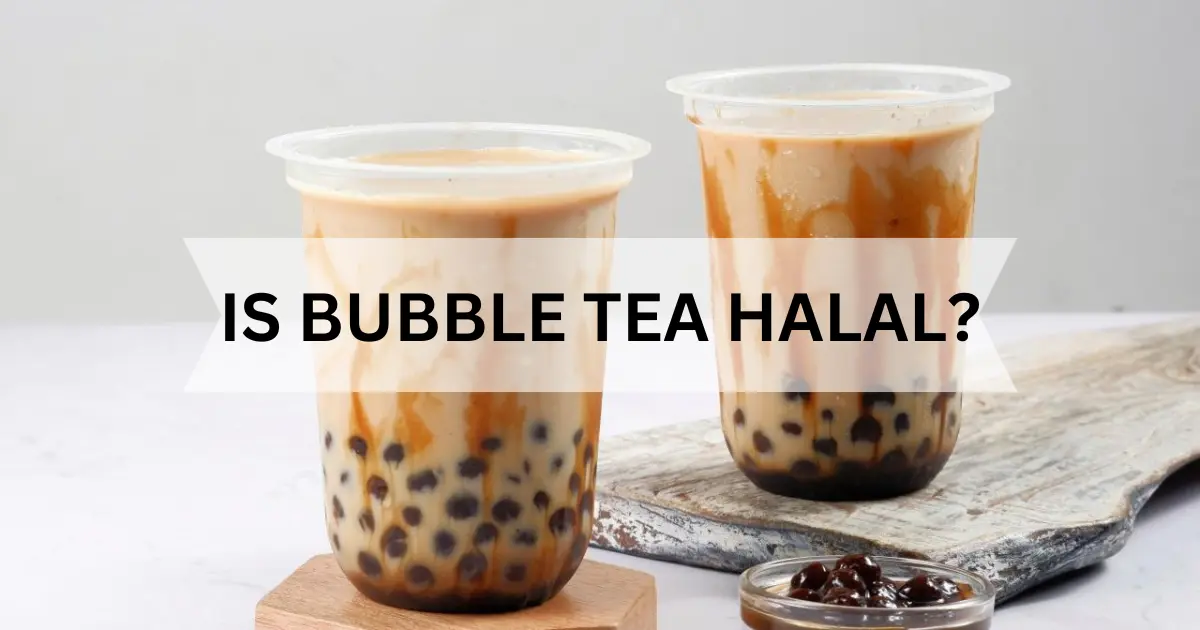Bubble tea, often a delightful refreshment choice for many, raises an important question for Muslim consumers: “Is bubble tea halal?” This popular beverage, known for its tapioca pearls and various flavors, requires careful consideration of its ingredients and preparation methods to determine its compatibility with halal dietary guidelines.
Understanding the halal status of bubble tea is crucial for making informed choices that align with religious beliefs and dietary preferences.
Understand What is Halal and Haram in Islam
Halal refers to what Islamic law permits or considers lawful. This category includes food, drinks, actions, and behaviors that align with Quranic principles and teachings of Prophet Muhammad (peace be upon him).
On the other hand, Haram signifies what Islam forbids or deems unlawful. This includes substances, activities, or practices explicitly prohibited in Islam, such as consuming pork, alcohol, and any intoxicants.
Is Bubble Tea Halal
Yes, bubble tea can be halal, but it depends on the ingredients and preparation methods. Typically, bubble tea includes ingredients like tea, milk, tapioca pearls (boba), and flavorings.
For it to be considered halal, these ingredients must not contain any non-halal substances, such as alcohol or non-halal gelatin.
Muslim consumers should look for bubble tea brands that are certified halal or verify the ingredients used to ensure they meet halal dietary requirements.
List of Bubble Tea Ingredients and their Halal Status
| Ingredient | Halal or Haram | Description |
|---|---|---|
| Tea | Halal | Typically sourced from Camellia sinensis plants. |
| Milk | Halal | Mostly Used a cow Milk in bubble tea and this is halal |
| Tapioca Pearls (Boba) | Halal | These balls are made from tapioca, agar, or alginate, which are all considered halal ingredients. |
| Flavorings | Depend | Natural or synthetic flavorings are permissible if they do not contain alcohol or non-halal additives then they are halal |
| Sweeteners | Halal | Commonly include sugar or other natural sweeteners and these are halal |
| Syrups | Halal | Syrups is free from alcohol and non-halal additives. |
This table outlines the typical ingredients found in bubble tea and confirms their halal status
Variety of Bubble Tea Flavors and Their Halal Status

Bubble tea comes in a variety of flavors, and its halal status depends on the specific ingredients used. Generally, flavors like fruit-based syrups (e.g., mango, strawberry) are halal as long as they do not contain alcohol or non-halal additives.
Other common flavors like matcha, taro, and chocolate can also be halal if they meet halal certification standards or are made with halal ingredients.
Consumers need to check the ingredients or ask about halal certification when choosing bubble tea flavors
Verifying Halal Status as a Consumer
- Ask Questions:
- When ordering bubble tea, inquire about the ingredients and preparation methods. Ask if any alcohol-based syrups or non-halal additives are used.
- Homemade Bubble Tea:
- Making bubble tea at home allows full control over ingredients. Use halal-certified tapioca pearls and flavorings without alcohol.
Related Post
Conclusion
Bubble tea is halal depending on its ingredients and preparation methods.
While the basic components like tea, milk, and tapioca pearls are typically halal, consumers must ensure that flavorings and other additives do not contain non-halal substances.
By choosing halal-certified products or verifying ingredients, Muslim consumers can enjoy bubble tea confidently, knowing it aligns with their dietary guidelines.
FAQs
Syrups: Ensure they contain halal ingredients.
Flavorings and colorings: Some may use alcohol-processed flavorings (e.g., vanilla extract).
Toppings: Check for any non-halal additives like jelly


